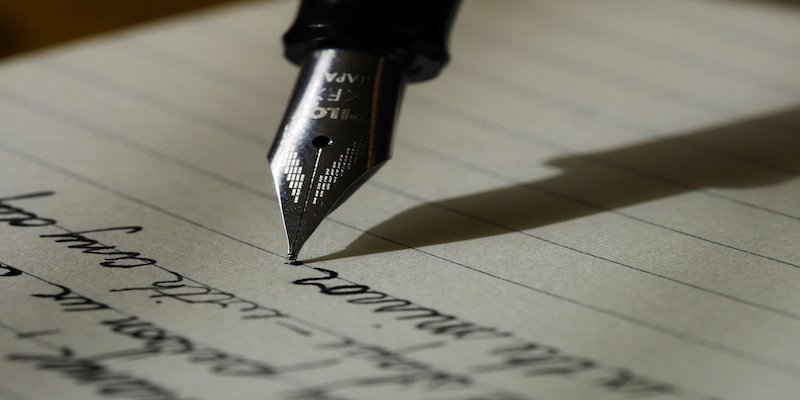Wills and Powers of Attorney are essential tools for ensuring that your assets are protected. However, many people are confused about what they are and actually believe they are the same thing.
The reality is that they both serve very different purposes, so it is essential to have both in place if you want the peace of mind that everything you have worked so hard to obtain is safe and secure. To help alleviate confusion, here is our guide to the difference between a Will and Power of Attorney.
What is a Will?

A Will is a legal document that outlines what should happen following your death and how you want your assets to be distributed as part of the probate process. This is key to successful estate planning, as without a Will, your estate will be distributed according to the rules of intestacy, which may not correspond to your wishes.
Alongside ensuring your wishes are documented, a Will also allows you to name up to four executors who will manage the distribution of your estate, including, if you wish, a solicitor. This means you can be confident that your assets will be handled by someone you trust and that there will be no confusion among family and friends as to who is legally responsible for your estate.
Of course, in some cases, a party may want to challenge your Will and its contents. For that reason, it is important to have your Will created by a solicitor who can ensure that all the necessary steps are taken to make it legally valid, reducing the likelihood of it being successfully contested.
Why You Need a Will

While many of the reasons for making a Will are personal to the individual it’s created for (known as the testator), there are some common themes when it comes to why you would need one.
Ensuring Your Family is Provided For
Probably the number one reason for preparing a Will is to make sure that your family and loved ones have a secure financial future after you’ve gone. This could include setting aside funds for university, a nest egg to help purchase your child’s first home, or simply as a cash gift.
If you have younger children, you may want to include instructions in your Will to set up a trust for them. This gives you more control of when they will get access to money or assets and what it should be used for.
It’s also important to remember that if you die without a Will when you are unmarried and your home is solely in your name, your partner will not inherit your property under the rules of intestacy. Similarly, if you die while going through a divorce and don’t have a Will, your estranged wife or husband will receive a significant portion of your estate.
This is why having a Will and keeping it up to date is so important.
Naming Your Child’s Guardian
If you have a child under the age of 18, your Will can stipulate who you want to have legal guardianship in the event that your death leaves them orphaned. This is important, as without this instruction, the courts will have to decide guardianship – a process that may put your child under unnecessary emotional strain.
It’s also important to remember that although you may have named friends or family members as godparents to your children, this is not legally binding and so guardianship will not automatically pass to them.
It’s still possible that, should your Will be contested, the courts will have to intervene, but by setting out your wishes clearly you dramatically decrease the likelihood that the court will become involved extensively. Of course, if you believe your choice of guardian may lead to a dispute after your death, it’s a good idea to speak to all parties involved and make your wishes clear, ensuring that the instructions in your Will come as no surprise.
Avoiding Large Inheritance Tax Obligations
Depending on the size of your estate, Inheritance Tax may be due as part of the administration process. While many people assume that this is inevitable, there are, in fact, a number of steps you can take to minimise your estate’s tax liabilities – starting with a Will.
Ensuring that you have a valid Will in place can lower your Inheritance Tax (IHT) liabilities by making the most of potential exemptions. For example, anything that you leave to your spouse or civil partner is automatically exempt from IHT, while leaving assets such as property to the next generation is likely to result in a lower tax bill.
Saving on IHT is an extremely important way of making sure that more of your hard-earned money and assets can be distributed the way you want, instead of being handed over to HMRC. Of course, a Will is just one element you should consider when it comes to Inheritance Tax planning, so always ensure you seek expert legal and financial advice.
What is a Power of Attorney

A Power of Attorney (POA) is a legal document that allows you to nominate somebody to make decisions for you on your behalf, while you are still alive.
There are two main types of Powers of Attorney:
Ordinary Power of Attorney
An Ordinary Power of Attorney gives another person the power to make decisions on your behalf for a limited time period. While there are a number of reasons why this may be useful, it is most commonly used if you are overseas for an extended period of time or are recovering from an injury. In these scenarios, you may grant an Ordinary Power of Attorney so someone can, for example, act on your behalf to sell a property belonging to you.
Lasting Power of Attorney (LPA)
The most common type of Power of Attorney, an LPA is an ongoing arrangement that gives an individual the legal authority to make decisions on your behalf when you’re not mentally or physically able to. Unlike an Ordinary Power of Attorney, an LPA does not have an expiration date.
LPAs are commonly created in order to make health and wellbeing decisions, though they can also be created to make decisions around property and finances. As such, you can create two LPAs, one to deal with health and one to deal with finances.
You may also have heard of an Enduring Power of Attorney (EPA), which was replaced by the Lasting Power of Attorney in 2007. An EPA that was set up before October 2007 is still valid today, but would need to be registered with the Office of the Public Guardian if you become mentally incapable of running your own affairs.
Why You Need a Power of Attorney

While the fact that life expectancy is increasing is obviously a good thing, the reality is that diseases that affect your physical or mental capabilities – such as dementia – are also on the rise. As a result, you may find yourself in a position where you are unable to make your own decisions or look after your affairs.
A Power of Attorney will give you peace of mind that, if the worst does happen, you will have somebody you trust in charge of your affairs. Another important reason is that, while you may assume that your spouse or civil partner will automatically be able to make decisions on your behalf, this isn’t actually the case. In order for this to happen, you will need to have a Power of Attorney in place.
However, a Power of Attorney does not automatically provide complete power over your decision making process. When creating a POA, you can stipulate what decisions can be made on your behalf and what cannot, providing a further measure of control where required.
How to Get it Right

Now we have discussed the difference between a Will and Power of Attorney and why you should put them in place, the question now is how to set them up. After all, they are such important documents that it is essential you get everything right.
Ensuring that you have everything set up can be quite complicated, especially if you have complex financial arrangements in place. It’s therefore essential that you get independent, specialist advice and assistance.
This is where Shams Williams can help. We are experts in dealing with Wills and Powers of Attorney, so you can rely on us to guide you through the process – giving you peace of mind that everything is being taken care of. We also take the time to understand your individual circumstances, so we can ensure all of your wishes will be abided by.





